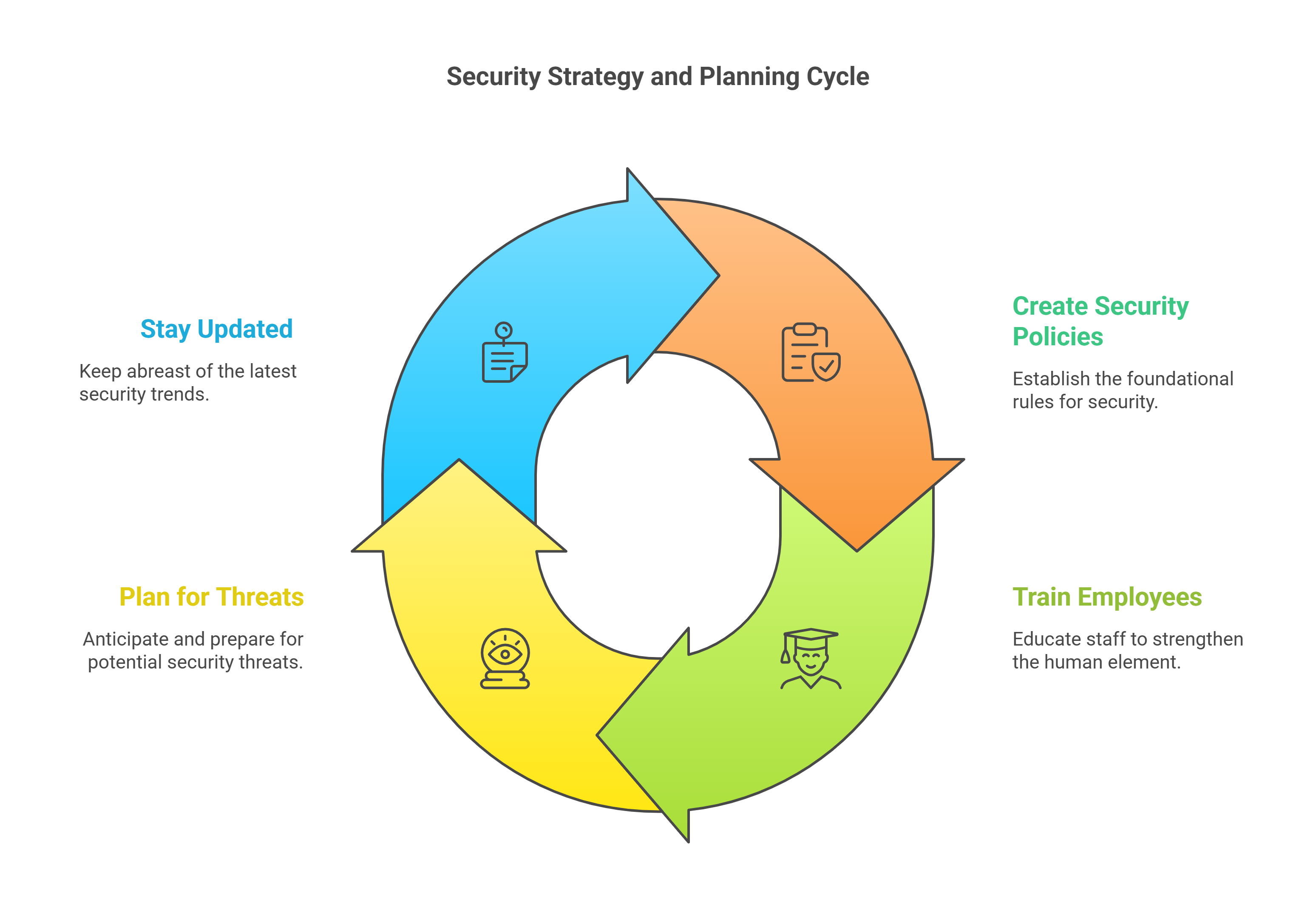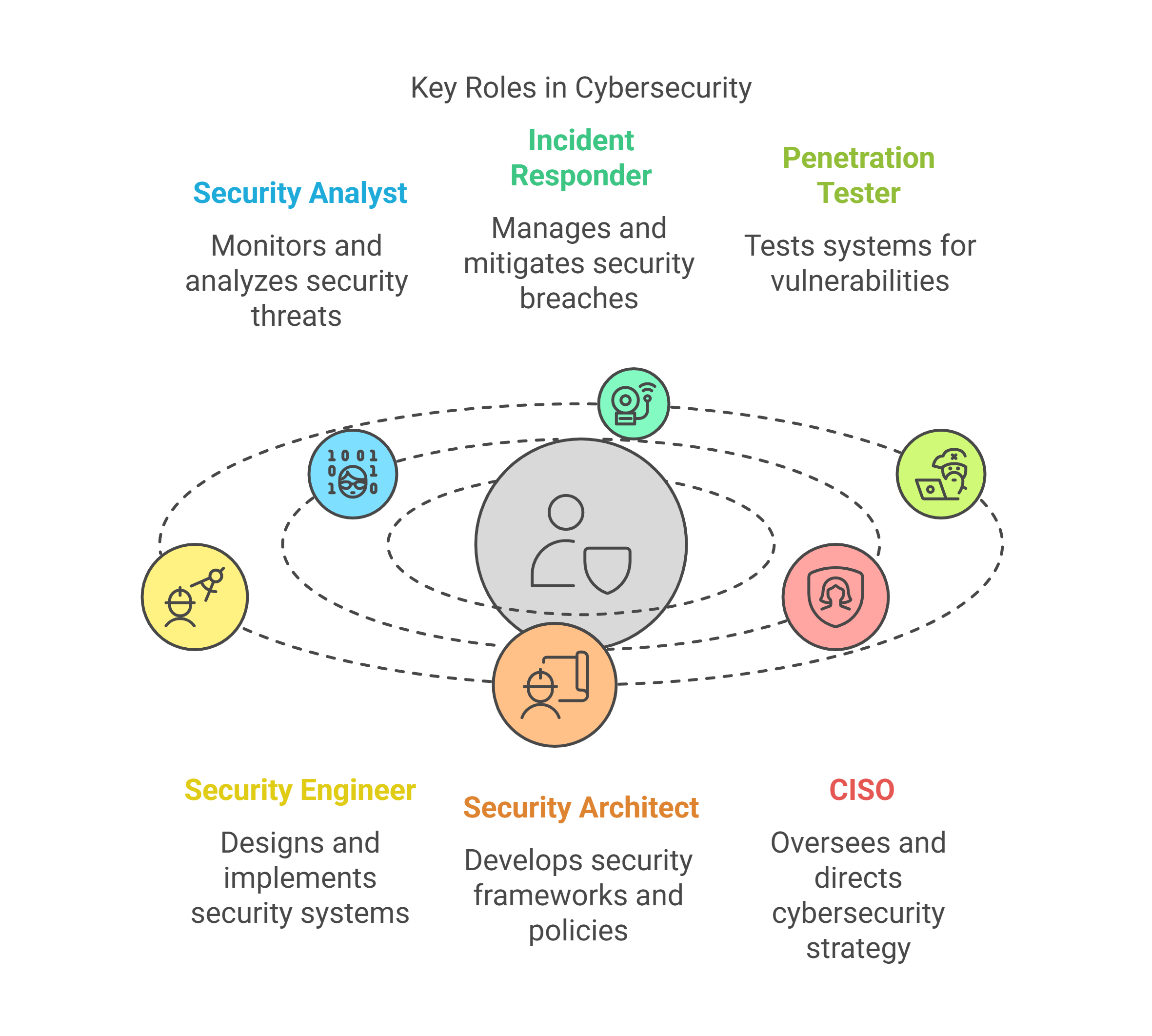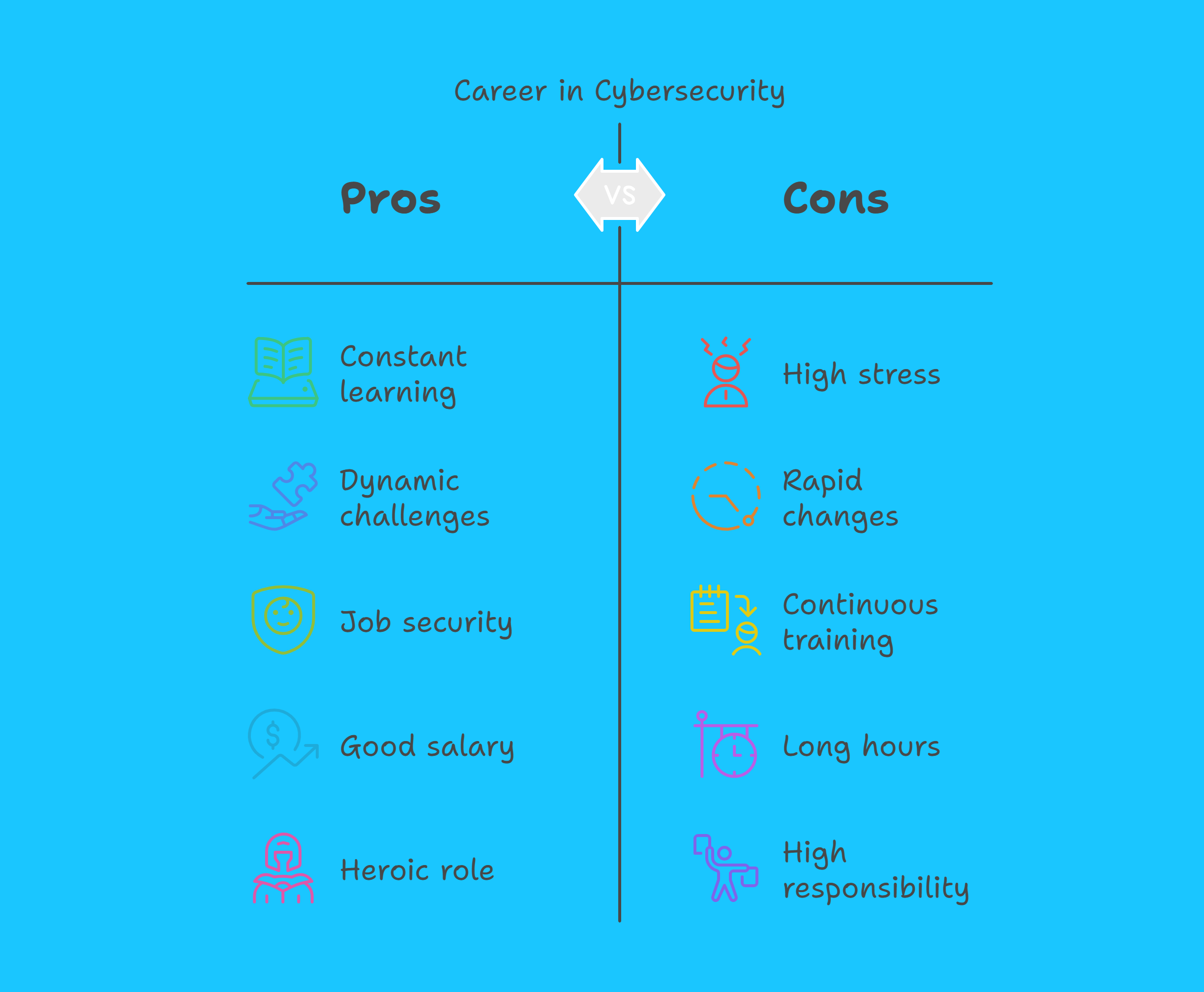
Breaking Into Cybersecurity: What You'll Actually Do (And Why It Pays $100K+ To Keep Companies Safe)
Ever wondered what cybersecurity professionals actually do all day? Hint: it's not just typing furiously at keyboards while green text scrolls by (though that would look pretty cool). Let me walk you through the real world of cybersecurity, where you're essentially a digital detective, guardian, and problem solver all rolled into one.
The Day-to-Day Reality of Protecting Digital Assets
Think of cybersecurity pros as the immune system of the digital world. Just like your body has multiple defense mechanisms, cybersecurity involves various layers of protection. You might start your morning by checking security alerts (like a doctor reviewing overnight patient data), then move on to investigating any suspicious activities (playing digital detective), and perhaps finish your day by updating security protocols (like reinforcing the castle walls).
What You'll Actually Be Doing
Monitoring and Detection
Remember playing "spot the difference" as a kid? That's surprisingly similar to monitoring network traffic for unusual patterns. You'll use sophisticated tools to watch for anything fishy in your organization's digital environment. It's like being a bouncer at an exclusive club, but instead of checking IDs, you're checking data packets and user behaviors.

Incident Response
When something does go wrong (and trust me, it will), you're the person everyone turns to. Think of it like being a firefighter - you need to act quickly, stay calm under pressure, and know exactly which tools to use for different types of security "fires."
System Fortification
A big part of your job involves making systems harder to breach. This means:
- Configuring firewalls (like building digital walls)
- Managing access controls (deciding who gets the keys to which digital doors)
- Implementing security patches (fixing holes before the bad guys find them)
- Running security assessments (basically trying to break into your own systems before others do)
Strategy and Planning
It's not all technical work. You'll often find yourself:
- Creating security policies (the rulebook everyone needs to follow)
- Training employees (because humans are often the weakest link)
- Planning for future threats (crystal ball not included)
- Staying up-to-date with the latest security trends and threats

The Skills You'll Need (And Yes, You Can Learn Them)
The beautiful thing about cybersecurity is that it welcomes people from all backgrounds. While technical skills are important, critical thinking and problem-solving abilities are just as crucial. You'll need:
- A solid understanding of networks and systems
- Knowledge of common security tools and practices
- Strong analytical skills
- Good communication abilities (you'll be explaining complex issues to non-technical folks)
Frequently Asked Questions
What exactly does cyber security do?
Cybersecurity protects organizations' digital assets from threats, including data, networks, and systems. It's like being a digital security guard, but with cooler tools.
Is cybersecurity a hard job?
It can be challenging but is very rewarding. The learning curve can be steep, but with dedication and interest, most people can succeed. It's more about problem-solving mindset than pure technical expertise.
What jobs does cyber security do?
Roles include Security Analyst, Incident Responder, Penetration Tester, Security Engineer, Security Architect, and Chief Information Security Officer (CISO).

What does a cyber security person do daily?
Daily tasks include monitoring security systems, investigating alerts, updating security measures, conducting assessments, and responding to incidents. Each day brings new challenges.
Is cyber security a 9-5 job?
While many positions follow regular business hours, some roles require on-call duties or shift work, especially in incident response or security operations centers.
Is cyber security easy to learn?
The basics are accessible to most people with interest in technology. Many resources are available online, and the field rewards continuous learning.
Is cyber security high paying?
Yes! Entry-level positions often start at $60-80k, with experienced professionals easily earning over $100k. Senior positions can command $150k+.
Does cyber security require math?
Basic math skills are helpful, but advanced mathematics isn't typically required. Understanding logic and problem-solving is more important.
What skills are needed in cyber security?
Key skills include networking, operating systems knowledge, security tools proficiency, analytical thinking, and communication abilities.
Is cyber security work from home?
Many cybersecurity roles offer remote work options, especially since COVID-19. However, some positions may require on-site presence.
Is there a lot of typing in cybersecurity?
While typing is part of the job, it's not constant. You'll spend more time analyzing, problem-solving, and using security tools than typing.
Do you need a degree for cyber security?
While helpful, a degree isn't always required. Many employers value certifications (like CompTIA Security+, EC-Council's Certified Ethical Hacker, CISSP and others.) and practical experience just as much and sometimes more.

Final Thoughts
Remember, cybersecurity is more than just a job - it's a career where you're constantly learning and adapting to new challenges. Every day brings something different, and you get to be the hero who keeps organizations safe from digital threats. Plus, the job security and salary aren't bad either!
Ready to take your first step into cybersecurity? Start with some basic certifications (A+, Network+, Security+) and hands-on practice in home labs. The digital world needs more defenders, and you might just be perfect for the role.
 Add Row
Add Row  Add
Add 



